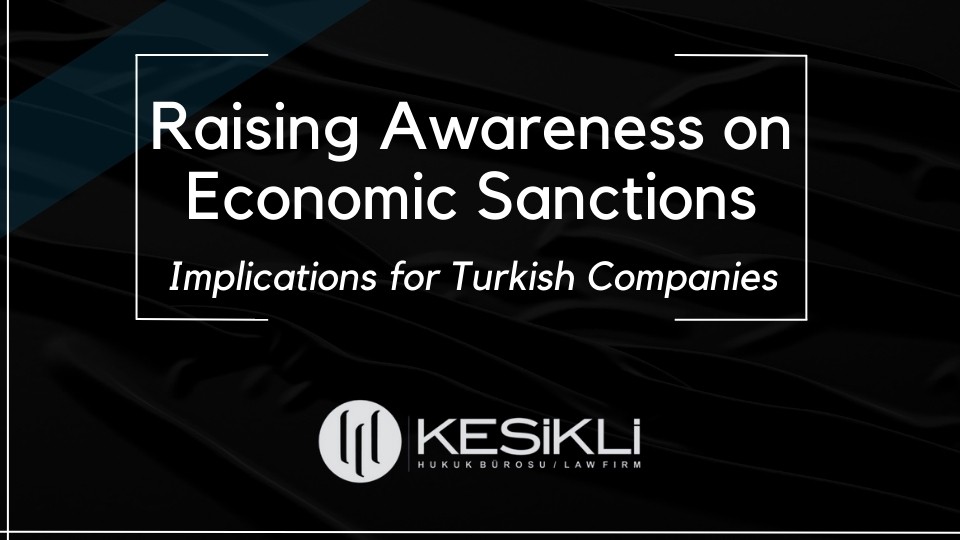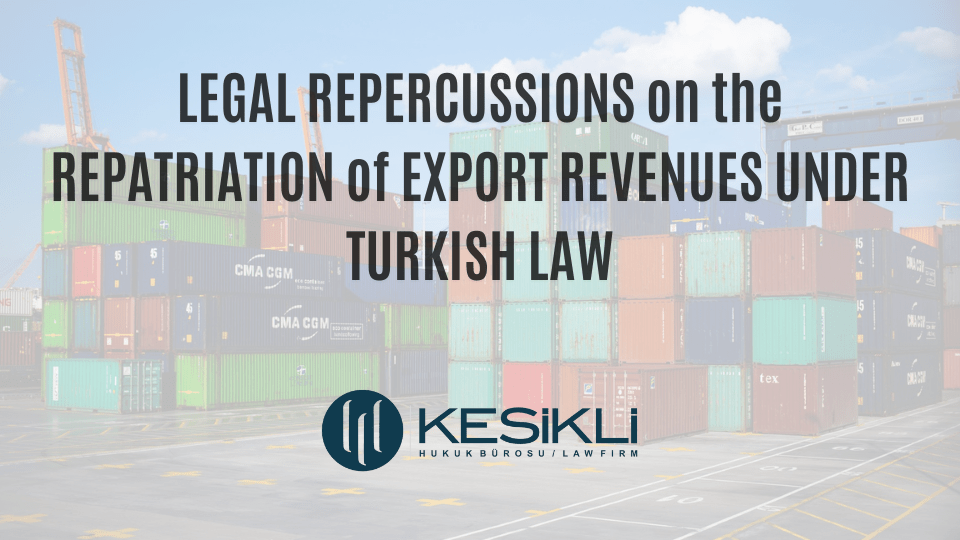Enforcement of Foreign Court Judgements in Turkey – Series No. 1
Foreign court judgements are not directly enforceable in Turkey. According to Art. 50 of Private International Law and Procedure Act numbered 5718 (the “Act”), a final judgement rendered by a foreign civil court can only be enforced in Turkey if competent Turkish court decides that it is enforceable. Therefore, those holding a foreign court judgement to be enforced in Turkey need to go through a court proceeding for making that court judgement enforceable. As a result of this procedure, if successful, competent Turkish court will render an enforcement judgement (“exequatur”) with the result of giving enforceability to the foreign court judgement. This article summarizes the conditions for enforcement of a foreign judgment under Turkish Law.
Finality of Judgement
The Act requires the judgement, enforcement of which is sought in Turkey to be final. A foreign court judgement that has not been finalised cannot be enforced in Turkey. The issue of whether the judgement has been finalised is determined as per the laws of the country where the judgement was rendered. It is important to note that whether the laws of the country where the judgement was rendered allow court judgements to be executed without being finalised does not make any difference here.[[1]](https://www.kesikli.com/enforcement-of-foreign-judgements-in-turkey/#_edn1) Connected with this requirement, according to the Art. 53 of the Act, an official document or certificate confirming the final nature of the judgement enforcement of which is sought must be submitted with the petition initialising the enforcement proceeding.
Reciprocity
According to the Art. 54(1) of the Act, there should be either an agreement, on a reciprocal basis between the Republic of Turkey and the state where the court decision is given (“contractual reciprocity”) or a de facto practice (“de facto reciprocity”) or a provision of law enabling the authorization of the execution of final decisions given by a Turkish court in that state (“legal reciprocity”). Therefore, if there is a treaty between Turkey and the state where the judgement was rendered, enforcement would take place according to the provisions of that treaty. If not, legal or de facto reciprocity must be met. Legal reciprocity means that the relevant state does not impose stricter conditions for enforcement than those required for enforcing foreign awards in Turkey.[[2]](https://www.kesikli.com/enforcement-of-foreign-judgements-in-turkey/#_edn2) De facto reciprocity, as its name implies, means that Turkish court judgements are being enforced in that relevant state irrespective of whether there is contractual or legal reciprocity. It is important to note however that, if Turkish court judgements are not enforced in such jurisdiction in practice, despite contractual and/or legal reciprocity, then the condition of reciprocity cannot be deemed as met.
Exclusive Jurisdiction of Turkish Courts
A further (negative) condition for enforcement of a foreign court judgment in Turkey is that the judgement being sought to be enforced must not be on matters falling within the exclusive jurisdiction of Turkish courts. According to the High Court of Appeal, exclusive jurisdiction rules are for ensuring that the actions regarding issues regulated with these jurisdiction rules are only tried by Turkish courts (YHGK 04.03.2015, E. 2013/18-1628, K.2015/984). The underlying principle here is preservation of Turkish public order. In this vein, actions regarding real properties in Turkey, bankruptcy proceedings, labour disputes are considered within Turkish courts’ exclusive jurisdiction. It must be noted, however, these are not exhaustive. The Act does not explicitly state which actions fall within exclusive jurisdiction of Turkish courts. Therefore, the competent court will need to consider the underlying principle of jurisdiction rules and to determine whether the foreign court judgment is on a matter within the exclusive jurisdiction of Turkish Courts.
Excessive Jurisdiction of the Foreign Court
Another possible issue that may stand in the way of enforcing foreign court judgements is excessive jurisdiction—if the judgement has been rendered by a court which has accepted itself competent even if there is not a real relation between the court and the subject or the parties of the lawsuit. However, in order for this to prevent enforcement decision, the counterparty must have raised its objection on this ground in the main proceedings.
Turkish Public Order
A foreign court judgement cannot be enforced in Turkey if such judgement explicitly contradicts with the public order of Turkish Republic. In general speaking, in order for this to constitute a legitimate ground for resisting enforcement of foreign court judgement, the judgement must be contrary to the fundamental rights and freedoms, fundamental principles of international law, due process of law or the right to be heard. However, as the concept of public order is a fluid one, it is not possible to set out exactly what would be contrary to it. This is mitigated by the fact that Art. 54(1)(c) of the Act stipulates explicit contrariness to public order. In other words, not every conflict with Turkish public order would suffice to prevent enforcement of a foreign judgment. It needs to be an explicit one.
With respect to the issue of public order, it was uncertain whether the fact that the foreign court judgement is without reasoning would contradict with public order of Turkey and different branches of the High Court of Appeals rendered inconsistent decisions regarding this issue. Afterward, it was settled by a decision of High Court of Appeals’ General Assembly on the Unification of Judgement holding that mere absence of reasoning, per se, does not prevent enforcement of foreign court judgements (YİBGK 10.02.2012, E. 2010/1, K. 2012/1).
Violation of Right to be Heard
If the defendant’s right to be heard is violated, the defendant may resist the enforcement. If the defendant was not duly summoned pursuant to the laws of the state where the judgement was rendered or was not represented before that court, or the court decree was not pronounced in his/her absence or nonappearance in a manner contrary to the relevant laws of such foreign state, then the defendant may resist enforcement of that judgement in Turkey. However, the defendant must raise its objections in this matter before the court handling the enforcement proceedings. The courts are not allowed to consider these factors ex officio.
Satisfaction of the Judgement or Impediment for Enforcement
Finally, the defendant may resist enforcement on the grounds that the judgement has been entirely or partially executed previously or an impediment has occurred preventing its execution. For instance, if the defendant against whom enforcement is to be sought no longer exists (e.g. wounded up), then, in principle, it will not be possible to execute the foreign court judgement.
Competent Court
The enforcement proceedings should be brought before a civil court (in Turkish: asliye mahkemesi). There are different branches of civil courts. In order to prevent delays, the competent court must be determined at the outset. In this vein, if the judgement enforcement of which is sought relates to a commercial dealing between the parties, then commercial courts are competent to hear the case.
After designating what branch of civil courts is competent, the geographic jurisdiction should also be determined. As a principle courts of the place where the defendant’s residence has jurisdiction to hear the enforcement lawsuit. If the defendant does not have a residence in Turkey, then the case needs to be brought where the defendant is based. In case none of these is applicable, then the case may be brought in Ankara, Istanbul, or Izmir.
For more insight on Enforcement of Foreign Judgments in Turkey you may refer to our other articles below:
Enforcement of Foreign Judgements In Turkey – Series No. 2
Enforcement of Foreign Judgments in Turkey – Series No:3 Condition of Reciprocity
@Kesikli Law Firm
Let's Get Connected!



